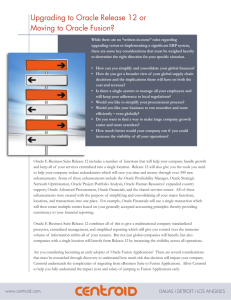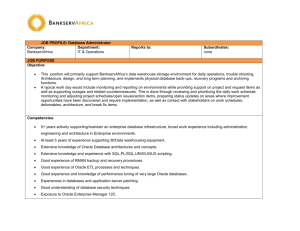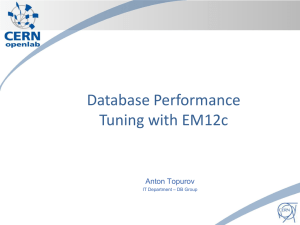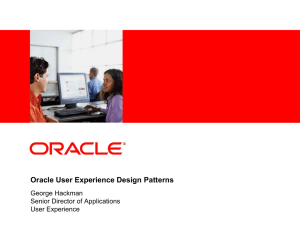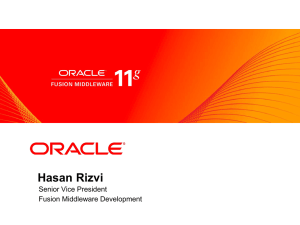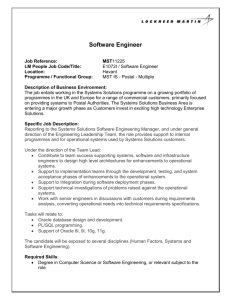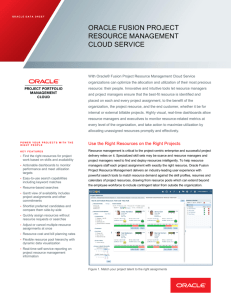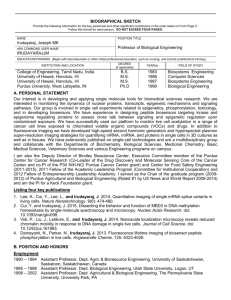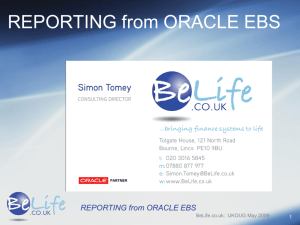Fusion Role Based Security - Chain-Sys
advertisement
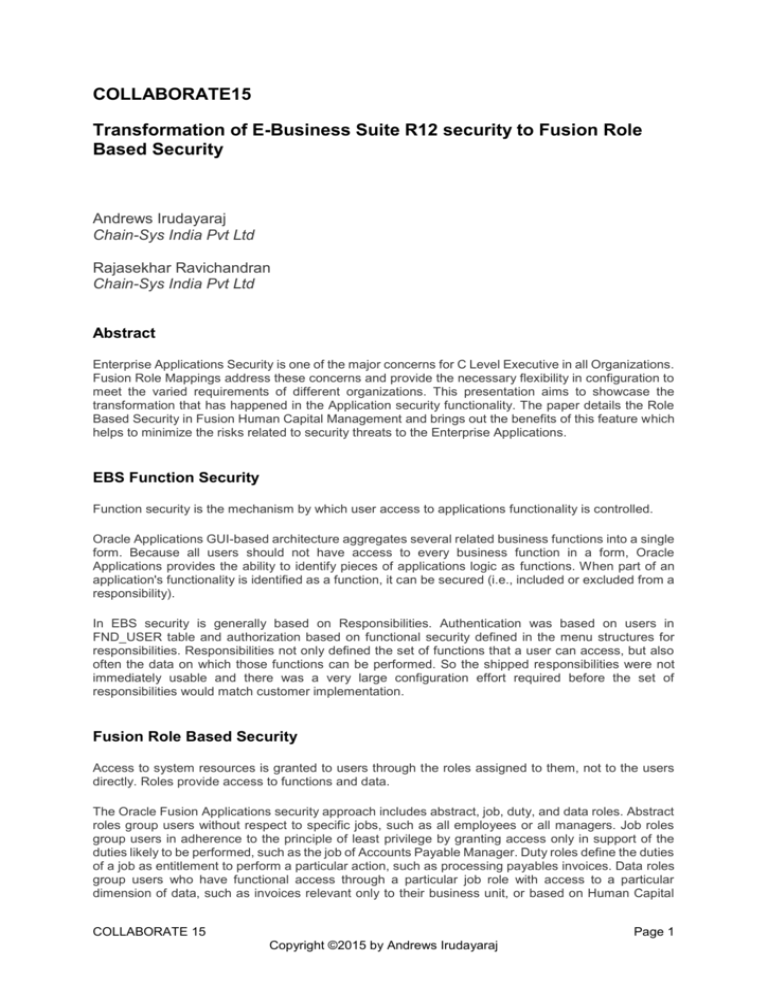
COLLABORATE15 Transformation of E-Business Suite R12 security to Fusion Role Based Security Andrews Irudayaraj Chain-Sys India Pvt Ltd Rajasekhar Ravichandran Chain-Sys India Pvt Ltd Abstract Enterprise Applications Security is one of the major concerns for C Level Executive in all Organizations. Fusion Role Mappings address these concerns and provide the necessary flexibility in configuration to meet the varied requirements of different organizations. This presentation aims to showcase the transformation that has happened in the Application security functionality. The paper details the Role Based Security in Fusion Human Capital Management and brings out the benefits of this feature which helps to minimize the risks related to security threats to the Enterprise Applications. EBS Function Security Function security is the mechanism by which user access to applications functionality is controlled. Oracle Applications GUI-based architecture aggregates several related business functions into a single form. Because all users should not have access to every business function in a form, Oracle Applications provides the ability to identify pieces of applications logic as functions. When part of an application's functionality is identified as a function, it can be secured (i.e., included or excluded from a responsibility). In EBS security is generally based on Responsibilities. Authentication was based on users in FND_USER table and authorization based on functional security defined in the menu structures for responsibilities. Responsibilities not only defined the set of functions that a user can access, but also often the data on which those functions can be performed. So the shipped responsibilities were not immediately usable and there was a very large configuration effort required before the set of responsibilities would match customer implementation. Fusion Role Based Security Access to system resources is granted to users through the roles assigned to them, not to the users directly. Roles provide access to functions and data. The Oracle Fusion Applications security approach includes abstract, job, duty, and data roles. Abstract roles group users without respect to specific jobs, such as all employees or all managers. Job roles group users in adherence to the principle of least privilege by granting access only in support of the duties likely to be performed, such as the job of Accounts Payable Manager. Duty roles define the duties of a job as entitlement to perform a particular action, such as processing payables invoices. Data roles group users who have functional access through a particular job role with access to a particular dimension of data, such as invoices relevant only to their business unit, or based on Human Capital COLLABORATE 15 Page 1 Copyright ©2015 by Andrews Irudayaraj Management (HCM) security profiles, such as employees who work in departments in a particular country, line of business, or division. Abstract, job, and data roles are implemented as enterprise roles in Oracle Fusion Middleware so they can be shared across the enterprise. Duty roles are implemented as application roles in Oracle Fusion Middleware so they can be defined within applications. The Transformation Transforming from the traditional Function based security to a Role Based Security requires a significant change management for the System Administrators and System Implementers. With compliance initiatives such as Sarbanes-Oxley, Gramm-Leach-Bliley and HIPAA, organizations must put into place processes ensuring users only have access to those resources required to do their current job function – nothing more. Without these processes in place, organizations have undue risk and exposure, whether it’s accidental or malicious in its intent. This is a significant driver for the transformation from Function based Security to Role based Security. Conclusion Because RBAC involves more objects than responsibility-based security, RBAC is slightly more complex to set up initially. However, RBAC is also more powerful and flexible than using only function security. Once you learn to set it up, RBAC can save a lot of time and effort in the long term by making administration of individual users and groups of users easier. COLLABORATE 15 Page 2 Copyright ©2015 by Andrews Irudayaraj About the Author Andrew Irudayaraj, has over 20 years of experience in Oracle Technologies. He has worked in Oracle India previously. He is currently the Vice President for Technology for Chain-Sys India Pvt Ltd. Rajasekhar Ravichandran, has about 12 years of experience in ERP Implementations and Consulting. He is currently the Vice President for the Oracle Fusion Practice in Chain-Sys India Pvt Ltd. About Chain-Sys Chain Sys is an Oracle Platinum Partner. Chain-Sys is renowned and acknowledged for its project and program management experience, industry and process knowledge, Oracle Business Accelerators and our own appLOAD™ suite of Productivity tools for EBS. Chain-Sys have implemented several end to end projects including those on Oracle EBS release 12. The verticals served include Engineering, Textiles, Chemicals, Glass, High Tech, Trading, Warehousing and Discrete Manufacturing. Chain-Sys also provides high quality Custom Application Software design and development services adhering to quality standards to top class worldwide enterprises. Excellent Project Management and Control, Application and Technology Architects, finest quality conscious programmers and testers, and GUI experts (artists) make the deliverables shine. Chain-Sys’ VISION is to become your trusted “Business and IT Solutions Partner”. COLLABORATE 15 Page 3 Copyright ©2015 by Andrews Irudayaraj

